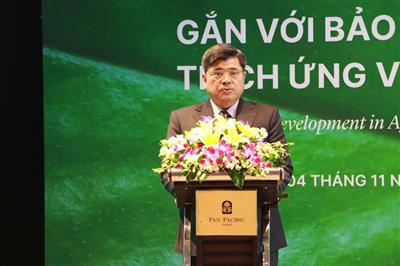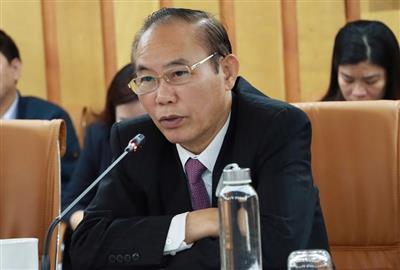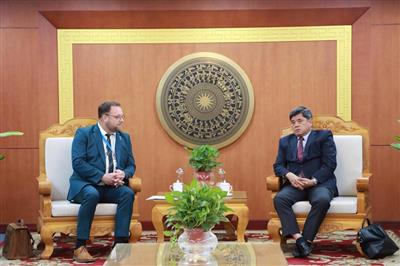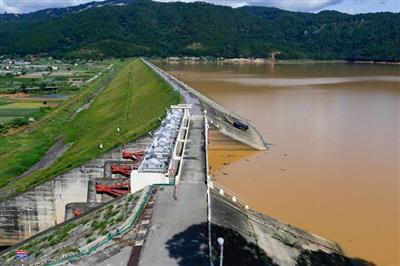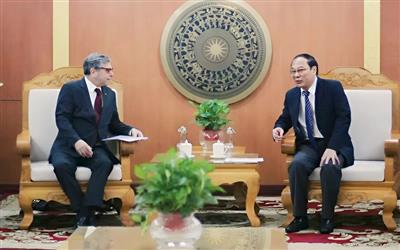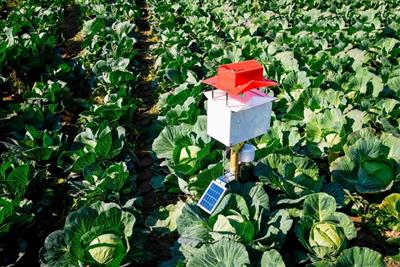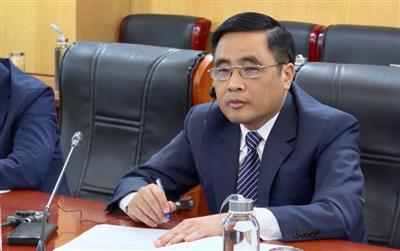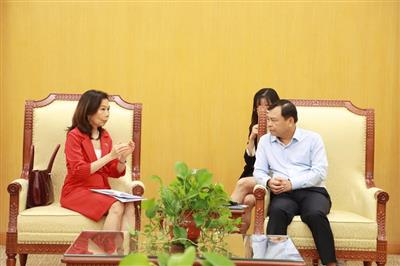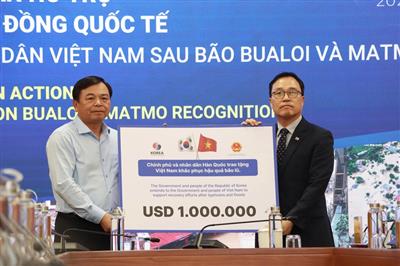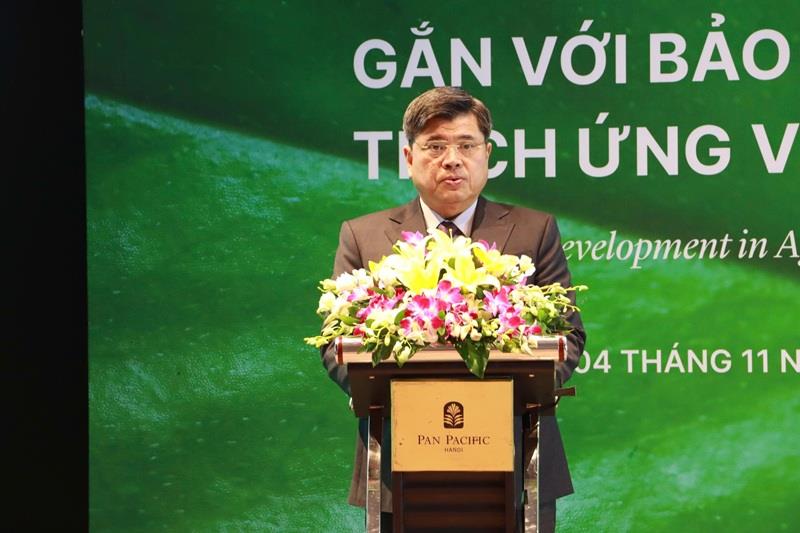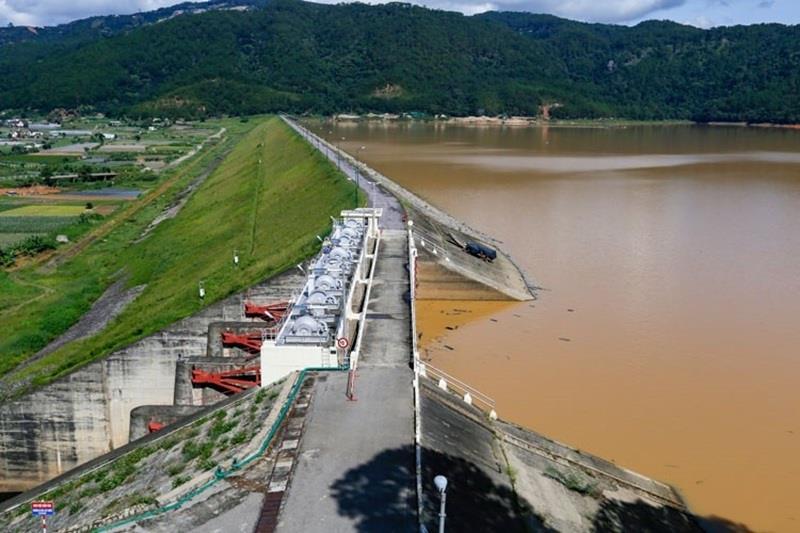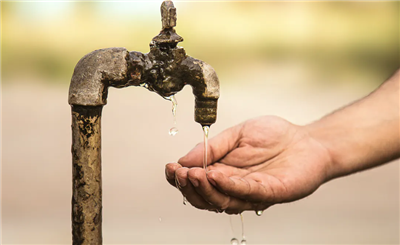
United Nations pledges to support Vietnam in advancing NDC 3.0 and climate commitments
19/08/2025TN&MTOn August 19 in Ha Noi, Acting Minister of Agriculture and Environment Tran Duc Thang received Ms. Pauline Tamesis, the UN Resident Coordinator in Viet Nam. Taking place as Vietnam is finalizing its third Nationally Determined Contribution (NDC 3.0) in preparation for COP30, the meeting underscored not only Vietnam’s political determination in responding to climate change but also the UN’s long-term commitment to supporting the country through finance, technology, and policy cooperation towards the Sustainable Development Goals and Net Zero.
Continued support in four key areas
Speaking at the meeting, Acting Minister Tran Duc Thang emphasized that Vietnam has always considered cooperation with the United Nations as one of the most important foundations for realizing its sustainable development goals. According to him, Vietnam’s core policies consistently place people at the center, seeking to promote green growth while ensuring social equity. “No one will be left behind in the development process,” he said, stressing this as a guiding principle in policymaking.

On August 19 in Ha Noi, Acting Minister of Agriculture and Environment Tran Duc Thang met with UN Resident Coordinator Pauline Tamesis to discuss Vietnam’s NDC 3.0 and cooperation towards COP30, climate action, SDGs, and Net Zero (Photo: Kieu Chi)
To achieve these goals, the Acting Minister proposed that the United Nations continue to support Vietnam in four key areas: mobilizing green finance, transferring advanced technology, attracting private sector investment, and strengthening state governance capacity. These areas, he noted, are not only technical enablers but also essential foundations for implementing international commitments, particularly the goal of reaching net-zero emissions by 2050.
Acting Minister Tran Duc Thang also highlighted the ongoing revision of the Law on Environmental Protection, which is expected to be finalized soon. This revision is a critical step to domesticate international commitments, establish a clear legal framework for emission reduction, environmental quality management, and promote green investment. At the same time, the Ministry of Agriculture and Environment is expediting the preparation of NDC 3.0, incorporating new elements that reflect enhanced climate ambition. The draft is expected to be completed in September and reported ahead of COP30, underscoring Vietnam’s strong commitment and sense of responsibility as a highly climate-vulnerable developing country.
Just energy transition as a priority
A major highlight of the meeting was the consensus on the importance of a just energy transition. Acting Minister Tran Duc Thang stressed that this transition is “the key” to achieving net-zero emissions by 2050. He noted that the process requires a comprehensive approach—not only increasing the share of renewable energy but also ensuring a coherent system of financial, technological, and legal policies.

Vietnam proposed UN support in offshore wind and solar power, energy storage, grid upgrades, AI-based emission monitoring, and legal frameworks for renewables and carbon markets—key solutions for Net Zero and global low-carbon competitiveness
Under Vietnam’s proposal, the United Nations could support the country in several concrete areas: developing offshore wind and solar power; building integrated energy storage systems; upgrading transmission grids and substations; applying artificial intelligence in emission monitoring; and improving the legal framework for renewable energy and carbon markets. “These solutions are not only essential for Net Zero but also contribute to enhancing the competitiveness of the economy in the global low-carbon development trend,” he emphasized.
For her part, Ms. Pauline Tamesis reaffirmed that the United Nations stands ready to mobilize maximum resources to accompany Vietnam. She recalled the UN Secretary-General’s speech on July 22, which outlined six opportunities for just energy transition, describing it as a crucial cooperation framework that Viet Nam can seize in the coming period. She also recommended that Vietnam announce its NDC 3.0 target at a high-level event co-chaired by the President of Brazil in late September, calling it a milestone that would demonstrate strong political resolve.
Ms. Tamesis further highlighted the coordinated engagement of UN agencies. UNDP will continue to lead in supporting the NDC 3.0 process; UNICEF and WHO are focusing on projects related to public health and living environments; UN Women is advancing gender equality integration in climate response; while FAO and IOM are contributing to food security, livelihoods, and sustainable migration management. According to her, these forms of support are practical, aligned with Viet Nam’s specific needs, and carry long-term social impacts.
On August 19 in Ha Noi, Acting Minister of Agriculture and Environment Tran Duc Thang received Ms. Pauline Tamesis, the UN Resident Coordinator in Viet Nam. Taking place as Vietnam is finalizing its third Nationally Determined Contribution (NDC 3.0) in preparation for COP30, the meeting underscored not only Vietnam’s political determination in responding to climate change but also the UN’s long-term commitment to supporting the country through finance, technology, and policy cooperation towards the Sustainable Development Goals and Net Zero.
Strengthening policy cooperation for sustainable development
Beyond high-level dialogue, the Ministry of Agriculture and Environment and UN agencies have recently advanced a range of policy-oriented initiatives, helping to shape Vietnam’s sustainable development framework. These collaborations show that the United Nations is not only partnering at the project level but is also deeply involved in the formulation and implementation of national strategies.

On June 24, the Ministry of Agriculture and Environment, UNDP, and partners held a consultation workshop on the Draft Detailed Plan for implementing Vietnam’s National Action Plan on transparent, responsible, and sustainable food systems transformation to 2030, linked to NDC 3.0 and the SDGs
On June 24, the Ministry, together with UNDP, held a consultation workshop on the Detailed Implementation Plan for the National Action Plan on Food Systems Transformation to 2030. This document identifies 37 priority tasks to enhance food security, promote low-emission agricultural production, and strengthen community resilience to climate change. It is regarded as a significant step in aligning agricultural, environmental, and public health policies within a single framework.
Earlier, on May 14, FAO and the Ministry co-organized a technical workshop on digital transformation in agriculture, focusing on the role of big data, digital technologies, and artificial intelligence in production management. The workshop provided not only technical tools but also concrete policy recommendations to promote nature-based, sustainable agriculture in line with SDG 2 – Zero Hunger.
In addition, cooperation with UN Women, UNICEF, WHO, and IOM has been increasingly aligned with Vietnam’s sustainable development priorities, ranging from gender equality and health protection to migration management and disaster preparedness. UNDP, in particular, continues to play a pivotal role in supporting the Government in developing and updating NDCs, helping position Vietnam as one of the regional leaders in integrating development with climate action.
Looking back, it is evident that the partnership between the Ministry of Agriculture and Environment and the UN system has grown increasingly strategic and substantive. It not only helps Vietnam effectively implement its international commitments but also shapes national policies on a foundation of green, inclusive, and long-term development. This provides the groundwork for Viet Nam to enter a new era of international cooperation, where economic, social, and environmental goals are closely interlinked, guiding the country toward a sustainable future.
Minh Thao




